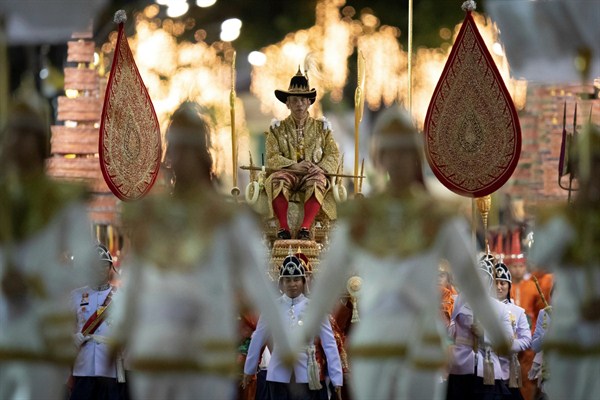Since ascending to the throne in 2016, the Thai king has taken several actions to expand his influence over Thailand’s politics, military affairs and economy. Will his maneuvering backfire?
Two weeks ago, the Thai king issued a royal decree placing two army units under his direct control, rather than under the normal military hierarchy. The decree claims the change was made necessary by an emergency, but there is no obvious emergency that justifies such a decision.
In reality, taking personal control of the military units is just the latest move by King Maha Vajiralongkorn to expand his influence over Thailand’s politics, military affairs and economy since ascending to the throne in late 2016. With elections and the seating of a new parliament earlier this year, Thailand shifted back toward an ostensible democracy, although one that remains under strict military control five years after the country’s latest coup. Vajiralongkorn seems intent on pushing the country further away from a constitutional monarchy as well, but in another direction altogether: closer to an absolute monarchy.

